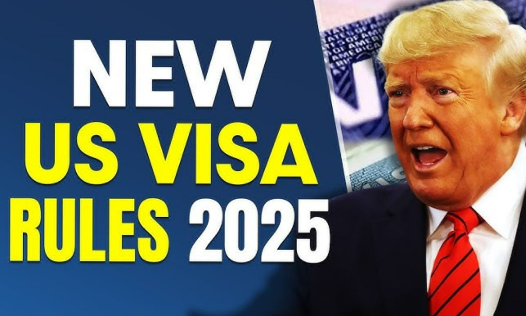Payment is being processed. Please do not refresh or close this page until your payment is complete.
 Book an Appointment
Book an Appointment

The U.S. has implemented a significant crackdown on visa policies in 2025, introducing stricter rules that affect foreign citizens across various visa categories. These changes, initiated under President Donald Trump's administration, aim to enhance national security and prioritize domestic employment.
Key Developments in U.S. Visa Policies
1. Enhanced Vetting and Screening Procedures
Executive Order 14161, signed on January 20, 2025, reinstates rigorous vetting standards for all visa applicants. This includes comprehensive background checks and identity verification, especially for individuals from countries identified as high-risk. The order mandates federal agencies to strengthen immigration screening to prevent entry of individuals who may pose national security or public safety threats .
2. Stricter Rules for International Students
International students, particularly from India, are facing increased scrutiny. In 2023, over 7,000 Indian students overstayed their visas, prompting proposals to eliminate the "dual intent" provision. This would require student visa applicants to demonstrate a clear intent to return to their home country after studies, making it more challenging to transition to work visas like the H-1B .
Additionally, over 1,800 student visas have been revoked due to minor infractions or politically charged activities, leading to heightened anxiety among current and prospective international students .
3. H-1B Visa Program Overhaul
The H-1B visa program has undergone significant changes to curb fraud and ensure compliance:
• Beneficiary-Centric Selection Process: Employers must now submit valid passport details for each beneficiary, limiting individuals to a single registration and reducing the chances of multiple entries for the same applicant .
• Clarified Specialty Occupation Requirements: The definition of "specialty occupation" has been revised to emphasize a direct connection between the applicant's degree and job duties .
• Increased Employer Accountability: Employers are subject to stricter inspections and must provide bona fide specialty position contracts. Non-compliance can lead to denied or revoked petitions, heavy fines, and suspension from sponsoring H-1B visas .
4. Reduced Visa Interview Waiver Period
The eligibility window for visa interview waivers (dropbox) has been reduced from 48 months to 12 months. This change affects nonimmigrant visa holders, such as those with H-1B and B1/B2 visas, requiring more applicants to schedule in-person appointments and potentially leading to longer wait times .
5. Increased Enforcement and Deportations
The administration has revoked visas of over 4,000 foreign students, primarily for serious criminal offenses committed in the U.S., including assault and robbery. A special action team within the State Department, in collaboration with the Department of Homeland Security, identified offenders by cross-referencing visa holders with law enforcement data.
Implications for Indian Citizens
India, being the second-largest source of international visitors to the U.S., is significantly impacted by these policy changes. The stricter visa rules and increased enforcement measures may lead to longer wait times for visa processing and heightened scrutiny for applicants. Indian students and professionals aiming to study or work in the U.S. are advised to stay informed about the latest requirements and ensure full compliance with immigration laws to avoid potential issues.